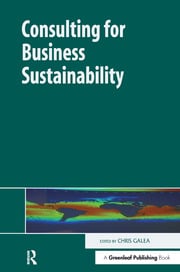
There are many factors that affect the salary of an environmental consultant. These factors include education, work experience, and where you live. Below is a list of average salaries for Environmental Consultants. In addition, we'll discuss factors that influence the salary and which certifications are necessary to become an environmental consultant. Here are some factors that influence the salary of an Environmental Consultant. Let's end with discussing factors that influence the salary of an Environmental Consultant.
Average salary
What is an average salary for environmental professionals? This job title requires education, experience, as well as geographic location. Apart from education, many other factors can influence the pay of an Environmental Consultant. For example, the industry in which the consultant works. Listed below are the most common factors that affect the salary of an Environmental Consultant. Learn more about the Professional Salary Report. This report is an invaluable resource for anyone interested in a career of Environmental Consultant.
An Environmental Consultant's average annual salary is $79,026. This salary is equivalent to a $38 hourly income. The highest-paid environment consultants make more that $101k. The lowest-paid 10 percent make $74,000 per year. The salaries of some states may be much lower than in others, but they are still higher than the national median. The median salary for an Environmental Consultant in the United States is about PS22,000, while the highest-paid 10% earn more than 101,000 annually.

Factors that affect salary
An environmental consultant's salary can be affected by several factors. A lot of them work from multiple places to complete projects and do gruntwork. They may have to travel and adapt to changing job requirements. These individuals must possess strong communication and collaboration skills. They also need to be flexible to adapt to new situations. It is rewarding to work in this field, but it also requires passion for helping the environment.
Being an environmental consultant will allow you to be proficient in computer-aided planning (CAD) as well as geographic information systems. These tools will help you analyze pollution data and study mitigation strategies. Also, you should know how to code. This skill is essential as environmental consultants must collaborate with cross-functional teams. You should also study coding languages. And remember that the salary of an environmental consultant will depend on several factors, including their level of experience, training, and education.
Based on experience, average salary
The average income for environmental consultants varies according to where they are located, their skills, and the years of experience. Entry-level environmental experts typically make between $38,000 and $47,000 per annum. Experienced environmental consultants earn close to $68,000 per year. However, this salary can vary widely. The average annual salary for environmental consultants is between $47,000 and $101,000. These are the highest-paid jobs in this field. Check out the careers below if you're interested.
Bachelor's degrees are required for entry-level positions in environmental science. Most universities and colleges offer degree programs for environmental science. Some program focus on one specific environmental issue, like natural science. Students can also study biology, chemistry, or physics. Many programs offer internships which can be valuable and allow students to explore their interests. While you're in school, consider working as an intern at an environmental consulting firm. This is a great way for you to network and gain valuable experience.

Certificate required for environmental consultants
A bachelor's degree or equivalent may be enough depending on the job. However, some companies prefer candidates with advanced degrees. It is a good idea to check the website of the company for information about the postgraduate programs. Job descriptions often list the educational requirements, and sometimes include employee bios. You may also benefit from a master's or doctoral degree. This postgraduate course can help you gain the experience you need for your new career.
To become an environmental consultant, you must first obtain the certification. CEP certification requires at minimum a bachelor's degree. Depending on the country's requirements, a person can qualify for the certification by having at least three years of relevant experience in an environmental-related field. The certification requires one to five years of work experience in an environmental-related field, although it is possible to obtain certification through volunteer work.
FAQ
Why would a company pay a consultant?
Consultants provide expert advice on how to improve the performance of your business. They aren't there to sell your products.
A consultant is a person who helps companies make better choices by providing sound analysis, and making recommendations for improvement.
Consultants often work closely alongside senior management teams to help understand what they need to succeed.
They offer coaching and leadership training to help employees achieve their highest potential.
They may be able to advise businesses on ways to cut costs, improve efficiency, and streamline processes.
How long does a consultant take?
Depending on your industry and background, the time required will vary. Most people begin their journey with less than a month before finding work.
Some consultants work for years to perfect their skills, before being hired.
Who hires consultants
Many organizations employ consultants to assist in projects. This includes small businesses, large corporations and government agencies.
While some consultants work for these companies, others are freelancers. In either case, the hiring process varies depending on the size and complexity of the project.
Many rounds of interviews are required when hiring consultants. Then, the final decision will be made about who you believe is best for the job.
What degree do I need to become a consultant?
Studying a subject deeply and then applying your knowledge is the best way for you to become an expert.
Start studying today if you want the skills to be a great manager!
A degree without relevant experience may make it difficult for you to be hired. If you have demonstrated that you have studied the same subjects as those who received the jobs, then you may still be eligible to apply.
Employers will always search for candidates with real-world experience.
Statistics
- On average, your program increases the sales team's performance by 33%. (consultingsuccess.com)
- According to IBISWorld, revenues in the consulting industry will exceed $261 billion in 2020. (nerdwallet.com)
- According to statistics from the ONS, the UK has around 300,000 consultants, of which around 63,000 professionals work as management consultants. (consultancy.uk)
- WHY choose me: Why your ideal client should choose you (ex: 10 years of experience and 6-week program has helped over 20 clients boost their sales by an average of 33% in 6 months). (consultingsuccess.com)
- Over 62% of consultants were dissatisfied with their former jobs before starting their consulting business. (consultingsuccess.com)
External Links
How To
What does a typical consultant's day look like?
Depending on what type of work you do, your typical day may vary. However, the majority of your day will consist of research and planning, meeting clients and preparing reports.
You'll often have meetings with clients where you can discuss issues and solve problems. These meetings can be done over the phone or via email.
Also, proposals are documents that outline your ideas or plans for clients. You'll need to discuss your proposals with a mentor, colleague, or friend before you present them.
You will need to create content after all your planning and preparation. You might be creating articles, videos, editing photos, writing interviews, or designing websites.
You may need to conduct research depending on the scope of your project to find relevant statistics and figures. For instance, you might want to find out how many people you have and if they are buying more than just one product or service.
Once you have enough information, it is time to present your findings and conclusions to clients. You can either present your findings in writing or orally.
After your initial consultation, you should follow up with your clients. You might contact them regularly to check on their progress or send them emails to confirm they have received your proposal.
This process takes time, but it's important to ensure that you stay focused and maintain good relationships with clients.